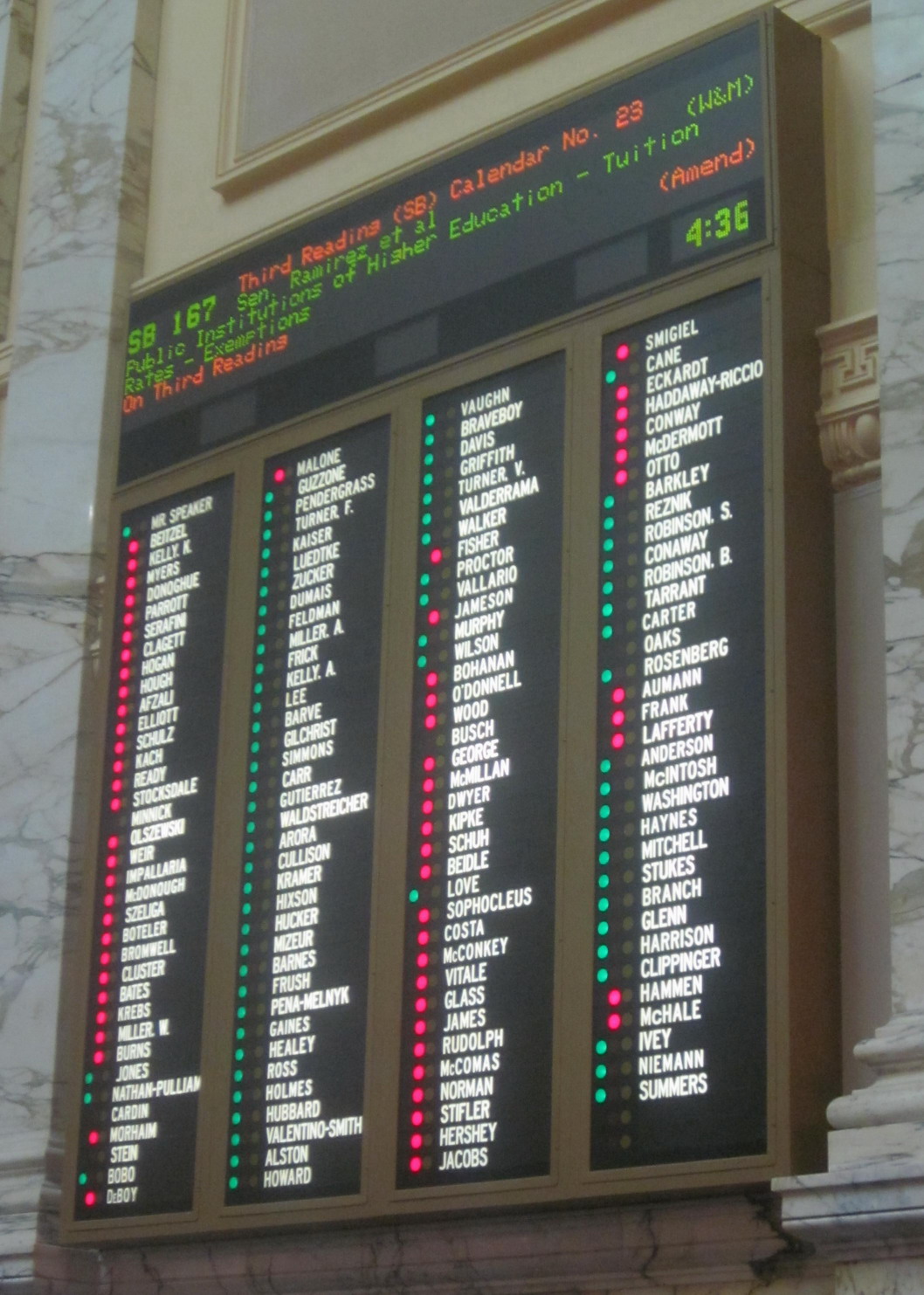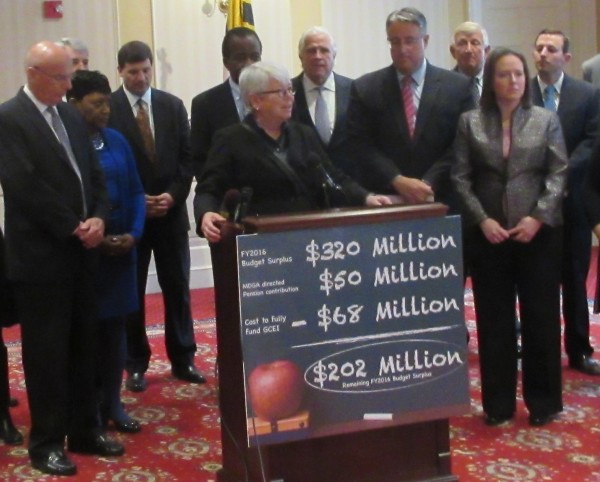@Bryan Renbaum
bryan@marylandreporter.com
The House and Senate sponsors of vetoed legislation that would provide tuition exemptions for certain undocumented immigrants in Maryland say the bill seeks to clarify existing law rather than expanding upon it.
The legislation is scheduled for override votes this month.
“I don’t think it’s really an expansion. I think it’s a clarification of the intent of the legislation when it was passed,” Sen. Clarence Lam, D-Howard, told MarylandReporter.com in an interview at his Annapolis office on Tuesday. “If you read the governor’s veto letter, he goes on about how this is a much broader expansion of the program, and I think that’s a misread of what this bill actually does.”
“This bill is really just trying to help students and help kids in college, and those who may want to seek a job in between, or serve their country — to have that flexibility to be able to do so.”
Del. Eric Luedtke, D-Montgomery, echoed similiar sentiments.
“When the Dream Act was passed and then approved overwhelmingly by voters at the ballot, it had some restrictions on it that over the years have proven to be a little bit unwieldy and unnecessary. Kids who qualify under the Dream Act have to jump through hoops that other kids don’t have to jump through.
“So this makes it a little bit easier for kids who have proved that they paid their taxes and have graduated from a Maryland high school to access a college education through the Dream Act.”
Gov. Larry Hogan announced the veto of SB0537 and HB0262, Higher Education-Tuition Rate-Exemptions, in a letter to then-Senate president Mike Miller and House Speaker Adrienne Jones on May 24, 2019. In the letter, Hogan chided lawmakers for passing the legislation instead of proceeding with his proposal, which would have provided U.S. citizens, permanent resident immigrants and undocumented Dreamers free tuition at a four-year institution for the final two years of their education.
“Inexplicably, the General Assembly refused to support this common sense expansion to help all Maryland students. Instead, you adopted legislation that only narrowly expanded existing law to the total exclusion of all Maryland students holding U.S. citizenship or permanent resident (‘Green Card’) immigration status. This is unfair and unacceptable.”
Hogan encouraged lawmakers to go back to the drawing board.
“Moving forward, our goals must be more broadly focused to ensure all Marylanders have access to a world-class education, instead of giving favorable treatment to just one small group.”
A spokesperson for the governor’s office declined to comment at this time about the legislation and the possible veto overrides.
Hogan vetoed six other bills passed during the 2019 legislative session. The House was scheduled to take up the bills today but a motion passed to place them on the “special order” calendar for Jan. 30. The Senate is scheduled to take up the bills on Wednesday but passage of a motion to special order is possible in that chamber as well. A special order motion delays consideration of legislation.
Lam and Luedtke’s bill would eliminate the requirements that undocumented immigrants attend community college in the same county where they graduated from high school, go to community college before attending a four-year institution, and attend college within four years of graduating from high school.
The General Assembly approved the Dream Act in 2011 and voters approved the measure in a referendum a year later. It allows undocumented immigrants who meet certain criteria to pay in-state tuition for higher education.
Lam said the legislation would address uncertainties that exist at the federal level.
“It also ensures that folks who had in-state tuition under the DACA [Deferred Action for Childhood Arrivals] program or the Temporary Protected Status program under the federal provisions — that they can continue to have these benefits under the Maryland Dream Act as long as they still pay state taxes.”
The Democratic-controlled House of Representatives passed the Dream Act last year. The measure is unlikely to gain traction in the Republican-controlled Senate.
DACA is the subject of numerous legal challenges.






Meanwhile, ” Non-Dreamers ” don’t get the same benefits, yet ” pay the bill ” for illegal alien ” dreamers ” who should never been allowed to stay…
Keep on voting for them, folks ! < sarcasm